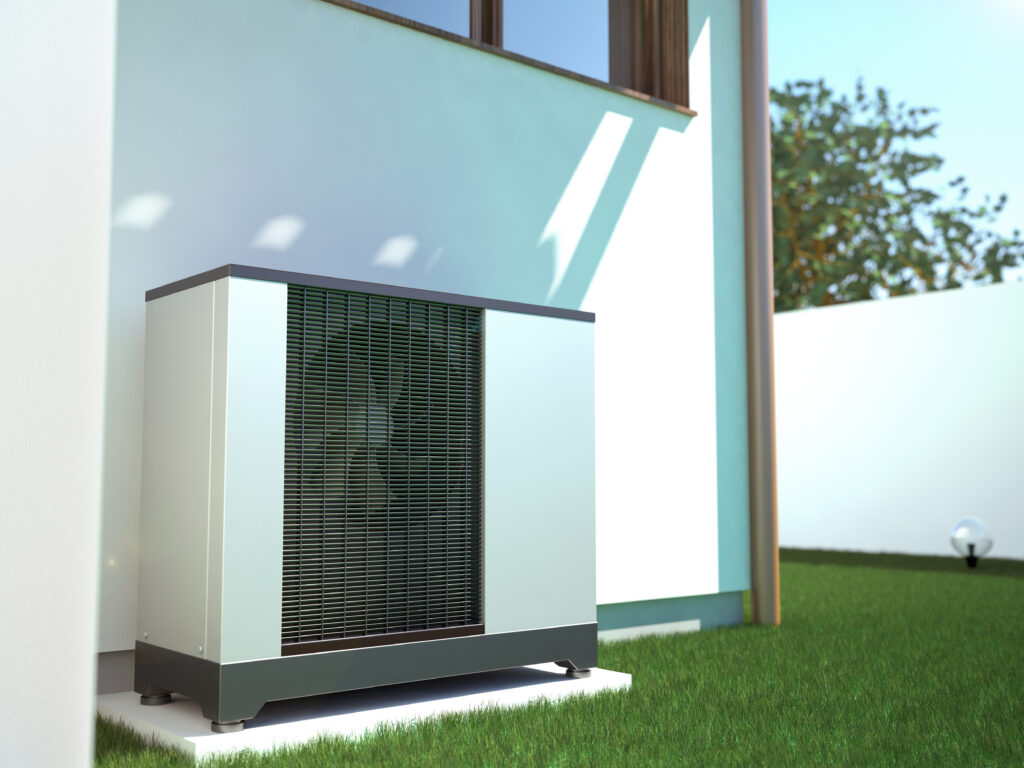Heat pumps are a hot topic at the moment, especially with the Government’s boiler upgrade scheme giving grants of up to £6,000 for those upgrading their current boilers to these lower carbon heating systems, but what are they? In this article we will take a look at heat pumps in more detail.

What is a heat pump?
In simplest terms a heat pump is a system which takes heat from outside and turns it into heat inside. The counter intuitive thing is that they can work when the external temperature is below zero. Yes, there is still thermal energy in the atmosphere at what we would consider cold temperatures.
How does it work
Now here is the clever bit, a heat pump works in the same way as your car air conditioning only in reverse. It works by essentially concentrating the heat from outside. Any gas which is compressed will increase in temperature, when it then expands it reduces in temperature, this phenomenon is used in a heat pump. The refrigerant gas when it expands cools to a point that it is able to absorb heat from the outside, it is then compressed further making it even hotter. This heat is passed into a heat exchanger which warms water in your home and this causes the refrigerant to cool. It is then passed through an expansion system causing it to cool even more and the cycle repeats.
What types of heat pump are there?
As far as the outside bit is concerned, where the pumps takes the heat from, there are 2 types:
- Air source – where the heat is taken from the surrounding air
- Ground source – where a pipe is buried under ground and the system extracts heat from the ground. Ground source systems require a “wet” heating system so if you do not currently have central heating, you’ll either need to install it or use an air source system
As far as the inside of your property is concerned there are again two types of heating systems:
- Air heating – Typically, this would be from an air source pump, but rather than heating water for radiators, the system heats the air being circulated in your property. This is perhaps more cost effective if you don’t currently have a wet central heating system
- Water heating – These types of system can easily be tagged on to your existing hot water and heating system and they heat the water in that system.
Which is best?
This very much depends on your property. If you have a large garden or an large external space where you can bury the pipework, a ground source pump might be a good option. It is worth mentioning here that ground source heat pump installations tend to be more expensive to install and are more intrusive as the ground loop is being installed. Ground source heat pumps, on average tend to be slightly more efficient as the winter temperature drops are not as large as those experienced by air source heat pumps. Conversely, in the summer the top temperature reached in the ground is not as high as the air. The further north you are, the larger the efficiency drop for air source heat pumps will be in the winter, perhaps tipping it for ground source pumps. Air source pumps are easier to install and work across all property types, i.e. those with and without current wet central heating systems. As they are easier to install and they don’t require any ground loops they also tend to be cheaper to install.
Heat pumps are the current state of the art low carbon alternative to gas or electric boilers and their installation is the preferred heating philosophy as far as the Government is concerned. They are not cheap to install and, compared to gas boilers, are currently slightly more expensive to run, although much easier to maintain, but their environmental credentials are beyond reproach. There is research out there, though, that suggest heat pumps will become cheaper and cheaper to run so don’t be put off by the current cost base. It is certainly worth looking into heat pumps more closely and taking advantage of the current Government scheme to upgrade gas boilers to heat pump systems.






